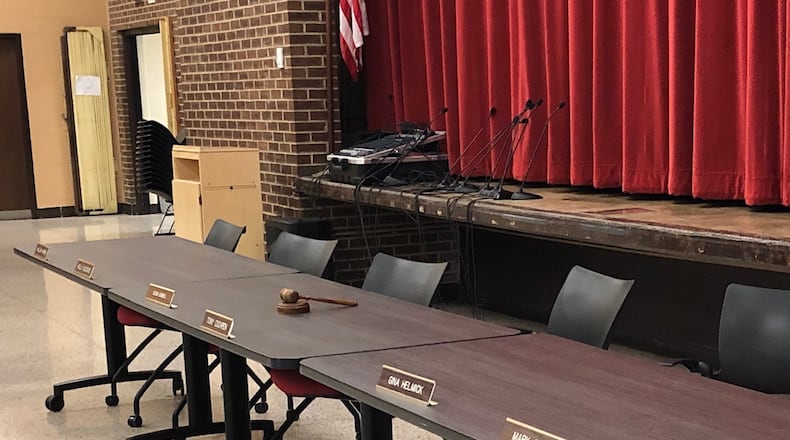RELATED: Huber schools hire new AD after last-minute switch
But the meeting notice sent by Huber Heights City Schools at 5 p.m. Wednesday said in advance that “No action will be taken.” At the meeting, the board voted to go into executive session, came out at 1:35 p.m. and immediately adjourned, without voting on any business items.
A Dayton Daily News reporter was the only person present other than three Huber Heights school board members, Treasurer Gina Helmick and retiring Superintendent Susan Gunnell.
Asked about the legality of the short-notice meeting, Helmick said guidance from the Auditor of State’s office says simply discussing an issue of immediate official concern counts as taking action.
A representative of the Auditor of State’s office said late Thursday that if such guidance exists, they were “unable to find it.”
RELATED: Dayton schools face lawsuits over meeting law, other issues
Ohio’s Open Meetings Act requires school boards, city councils and other groups to conduct public business in open meetings, with certain notification requirements, to give citizens a reasonable ability to observe.
Locally, Dayton Public Schools has been sued twice recently over Open Meetings Act issues. In one case, because a meeting wasn’t called properly to non-renew an employee’s contract, a court has ordered DPS to pay the terminated employee more than $42,000.
In the Huber Heights matter, the school board’s motion to go into executive session was also a point of contention, as the agenda included a long list of possible personnel actions to be discussed (appointment, employment, dismissal, discipline, demotion or compensation).
When the Dayton Daily News asked which of those possible actions was discussed, Helmick said the board doesn’t have to specify, despite the reporter presenting a court ruling to that effect.
RELATED: Huber superintendent Gunnell gets emotional sendoff
“We just made a motion to discuss personnel, and we always have (done that) when we go into executive session,” Helmick said. “We were in discussion with our attorney in there, and she indicated to us that it was OK.”
School board President Tony Cochren also said he believed the board had met the law’s requirements.
The Auditor of State’s office pointed to four court rulings in the Ohio Sunshine Laws manual saying that using general terms like personnel to go into executive session violates the Open Meetings Act. The Ohio School Boards Association’s guide points to a fifth case, Caldwell v. Westlake Board of Education, in advising boards that “the motion must state exactly which type of personnel action is to be discussed.”
On Friday morning, Helmick said the executive session was “to address complaints about personnel.” While “investigation of charges or complaints against a public employee” is a legal reason to hold an executive session, it was not listed as one of the possibilities on the board’s Thursday agenda.
On Thursday, district officials declined to comment on the substance of the discussions, as is their legal right.
COURTS: Task force subject to meeting law, but lawsuit dismissed
About the Author

